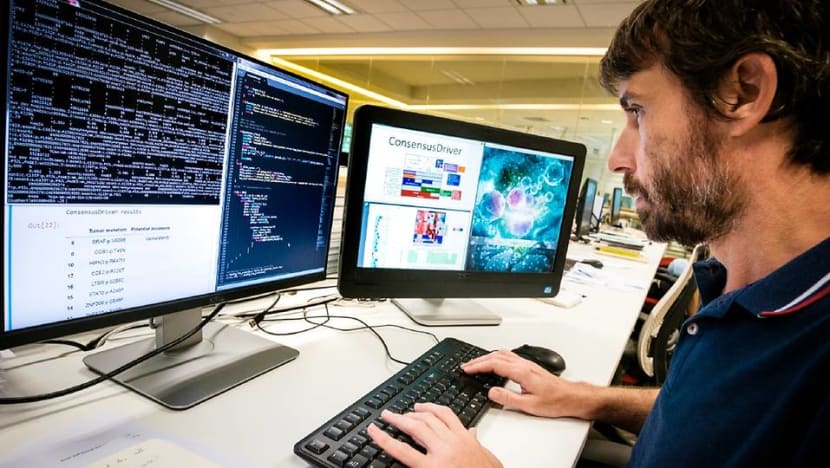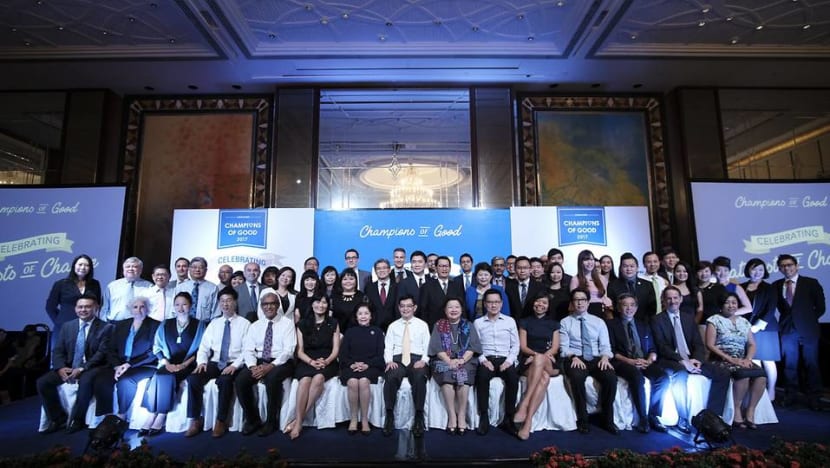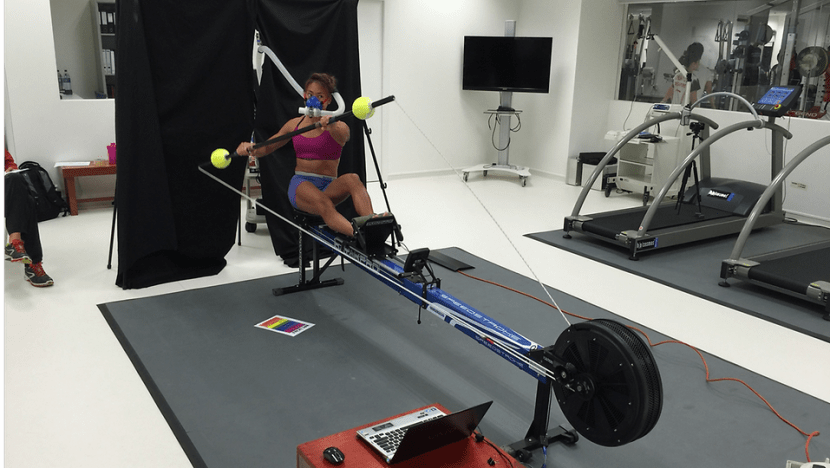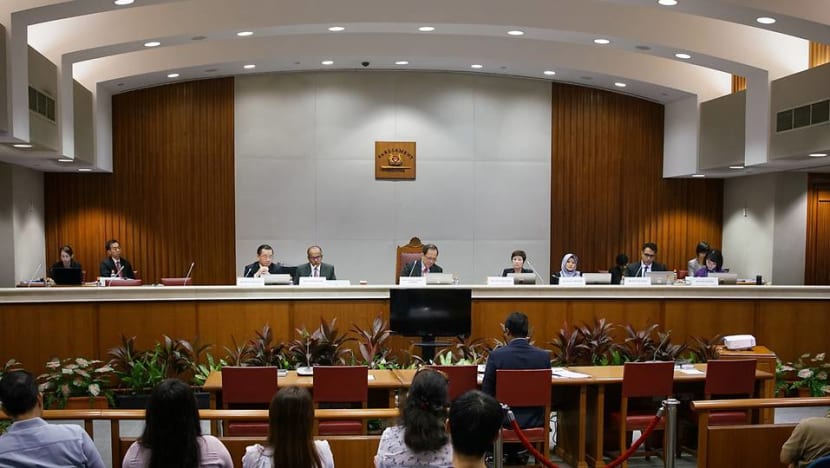commentary Singapore
Commentary: Singapore shows data can be a force for good
We must double-down on efforts to spread data literacy, and harness data as a force for good, says Tableau Software’s Asia Pacific communication director.

Singapore scientists develop system that uses data from multiple sources to better treat cancer. (Photo: A*STAR)
SINGAPORE: Singapore topped the 2017 Global Smart City Performance Index, a study of smart city initiatives for residents in 20 cities including San Francisco, Seoul, London and New York.
It measured how technology improved the quality of life across four areas namely mobility, health, safety and productivity.
Technology has permeated almost every facet of Singaporeans’ daily life.
“I think people don’t realise that 80 per cent of what a smart city offers … is not going to be anything that looks like an interface,” said Jacqueline Poh, chief executive of the Government Technology Agency of Singapore (GovTech).
Ms Poh also explained in a Channel NewsAsia programme that in its ideal form, a smart city delivers value to its citizens in subtle and intuitive ways “because they are so embedded within the fabric of society” – one that is fueled by data ubiquity.
DATA IS UBIQUITOUS IN OUR SMART NATION
Singapore has done well in sharing, interpreting and acting on both new and existing data.
Through sensors, cameras, receptors installed across the island, connected to a Heterogenous Network that gathers streams of data every day, coupled with a growing community of education institutions that teach data analytics in tertiary school curriculum, and an open portal that offers anyone access to data sets from over 70 public agencies, Singapore is well on its way to establishing a culture where data literacy is becoming sine qua non.
Some of Singapore’s institutions are taking the lead in establishing robust systems for tracking outcomes across their enterprises and drawing useful conclusions about evidence and impact.
In 2017, the country’s National Volunteers and Philanthropy Centre (NVPC) embarked on using visual analytics to connect and visualise governed data quickly, combine multiple views of data, gain actionable insights and share secured information with key NVPC staff for data-guided decision making on the go.

One of several areas where data has already made an impact on NVPC is in donor marketing. By embracing analytics for targeted fund-raising efforts, NVPC managed to yield a significant 56 per cent increase in donation amounts on giving.sg between April 2016 and April 2017.
NURTURING ATHLETES
Data has also been instrumental in helping to nurture high-performance athletes in Singapore’s bid to become a sporting nation.
The Singapore Sports Institute (SSI) uses visual analytics to keep tabs on the performances of over 70 of its athletes across different sports including swimming, badminton and table tennis.
Tracking athletes’ diets, sharing data between athletes and coaches and analysing past performances powered by data analytics surely trumps the old practice of manually keying and analysing data on spreadsheets, which comes with a high degree of variation and inaccuracy.
Similarly, private education institution PSB Academy announced a partnership with sporting devices company VX Sports this year to train students in its School of Life and Physical Sciences to harness data analytics.
They are able to track the physical conditions of their test subjects, arrive at more precise prognoses, and formulate specific actions that athletes could take to sustain levels of peak performance and benefit more from their training.

MOVING TOWARDS VISUAL ANALYTICS
By moving away from decisions based on opinion and toward decisions based on data, Singapore organisations like these have uncovered new opportunities to offer invaluable insights to help their stakeholders – whether budding sports scientists or volunteers – raise their game and become forces for positive social impact.
On the global stage, the United Nations recently announced an agreement establishing visual analytics platform Tableau Software, as its business intelligence standard across the United Nations system while simplifying the acquisition of analytics capabilities for all its 193-member states and affiliated entities.
United Nations Secretary-General António Guterres emphasised the growing importance of data analytics, especially for disaster response and in addressing social development issues, when he said:
Accurate data is the lifeblood of good policy and decision-making. Obtaining it, and sharing it across hundreds of organisations, in the middle of a humanitarian emergency, is complicated and time‑consuming, but it is absolutely crucial.
DATA AS A FORCE FOR GOOD
While data has been shown to be a force for good, serious questions have arisen recently about how data can also be manipulated for nefarious ends.
Facebook, a 2.2 billion user platform, admitted to a breach of trust when the personal data of over 87 million users was illegally used by Cambridge Analytica for purposes of targeted political campaigning.
In his book Homo Deus, Yuval Noah Harari commented presciently three years ago that some governments have not been keeping pace with the changing rules of the digital world.
"We need to recognise that our current democratic structures simply cannot collect and process the relevant data fast enough, and most voters don’t understand biology and cybernetics well enough to form any pertinent opinions," he said.
Yuval concluded that regulators have thus fallen behind in spite of being able to collect more data than ever. He said:
It’s like a poker player who knows what cards his opponents hold, yet somehow still manages to lose round after round.
While Facebook’s massive breach reveals the inadequacy of regulatory frameworks in safeguarding data privacy, what is just as concerning is if there is a lack of interest people have over how their personal data are mined, shared and used by these third parties before this disaster was uncovered.
One observer explains: “Likes and preferences are a currency open to be used by Facebook by default. This scandal goes to show how few people realise the tacit agreement in the digital exchange of data for services (let alone read the terms and conditions that enable this transaction).”
Days after Facebook’s testimony at Singapore’s Parliamentary Select Committee for Deliberate Online Falsehoods (DOFs), we saw a surge of commentators calling for more regulation in how data is being handled by social media platforms.
But a strident focus on greater regulation alone presents the broader public with a false dichotomy, that all data should either be left open but vulnerable to exploitation or kept closed but safeguarded.

A NEW DAY FOR DATA
Yes, there will always be the need for greater data governance to keep pace with the velocity of data use and production. But I would argue that retreating completely into walled gardens cannot be the way forward.
In fact, given how pervasive data already is in virtually every aspect of our lives, we must double-down on our efforts to empower more people to be both interested in their data and in acquiring skillsets to see and understand data for themselves, so that they are able to securely benefit from Singapore’s thriving open data environment.
We should recognise that as much as Singapore is already benefiting from the invisible hand of technology, we have also ushered a new day for data.
Whereas previously data analytics used to be reserved for a band of “high priests” in an enterprise who had to be trained in programing and coding to access, analyse and draw data reports for various lines-of-business, today everyone should be able to see and understand data with the availability of self-service analytics platforms.
In spite of the great strides that we have made in Singapore’s Smart Nation movement, there is still much left to do for this same movement to be compelling for everybody else and inspire more people to see data as a force for good.
Marcus Loh is director, Asia Pacific Communication at visual analytics company Tableau Software.















